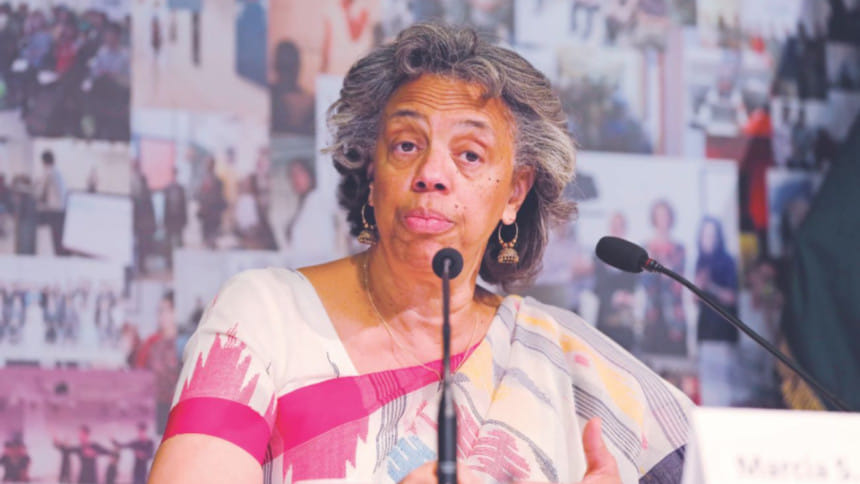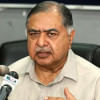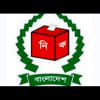Dialogue initiative remarkable

Welcoming the initiative of launching a dialogue between the government and the Jatiya Oikyafront, the outgoing US ambassador in Bangladesh Marcia Bernicat yesterday said an effective dialogue would have a positive outcome on the next general election.
“I will say [the] initiative of dialogue is a positive development,” Bernicat said while replying to journalists' queries at her farewell press conference at the EMK Centre in Dhaka.
“But I will urge them [the political leaders] to remember their political parties and to involve everyone from grassroots to [the] top,” she said.
“It's really remarkable. But the dialogue should not be any one-party dialogue. Democracy is a strong institution. We want the dialogue that strengthens the whole process, not any single political party.
“Bangladesh will fulfill its commitment to hold free, fair and credible election and legislatory election that will reflect the will of the Bangladeshi people,” Bernicat, who is scheduled to leave Bangladesh for Washington on completion of her nearly four-year stint in Dhaka, said.
“In order to do so I suggested many times, parties must be free to participate in the political process. They have to be able to meet without fear of arrest and free of intimidation. In addition, everybody needs to be able to engage in the process and engage in peaceful practices without intimidation and reprisal.”
In order to hold credible election there must be credible opposition so that they are able to act as political parties, not as the subject of intimidation or arbitrary arrest.
Americans are not supporting any particular candidate or party but rather support the democratic process and the values that Bangladeshis and Americans have in common.
On the Digital Security Act (DSA), she said freedom of expression was vital for a healthy democracy, particularly the ability of the members of the media, civil society organisations and opposition parties to express their views to advocate their policies.
Bangladesh is a far more complex society in terms of political history and political nature compared to some neighbouring countries, she observed.
On US-Bangladesh relations, she said during her four-year tenure as the US envoy, the relations between the two countries were open and positive despite some contentious issues.
Bernicat also said a number of ambassadors in Bangladesh had been lobbying with the government over the last two years on the issue of the DSA.
She said the ambassadors had urged and continued to urge that if a law was abused, especially and importantly freedom of speech, it was a dangerous scenario.
There will be an opportunity to change the law in future, she said. She also demanded a full investigation into the incident of the attack on her car a few months ago in Dhaka.
Bernicat also mentioned that during the liberation war the US policy was changed after the-then consul general of the US in Dhaka Archer K Blood sent a message on the war in 1971, highlighting the role of Senator Kennedy in this regard.
On the issue of workplace safety, Bernicat said over the last five years, Bangladesh's progress in safety in garments factories was remarkable, adding, that Bangladesh needed to improve its labour law to make it an international standard one.
She suggested strengthening the Remediation Coordination Cell for running inspection of and remediation in garments factories after the departure of two foreign agencies -- Accord and Alliance.
She praised the productivity of the workers in the sector as they were making high quality garment products in an era of fast fashion in the western world.
She suggested preparing to face the challenges of technologies in marketing, distribution of garment items and to save the jobs of millions of workers.
She said her government had devised the 10-year long $26 trillion Indo-Pacific strategy to improve infrastructures and investment. However, this mega initiative of the US would not result in a problem with the Chinese flagship initiative of the Belt and Road Initiative.
She also said the gender equality of Bangladesh was at the top level and such equality was needed everywhere. She also suggested that journalists be more careful while reporting mainly to avoid any kind of untoward incident.
She said the US encouraged the governments of both Bangladesh and Myanmar and also the UNHCR for negotiating a safe, voluntary and dignified repatriation of thousands of Rohingyas from Bangladesh to Myanmar.

 For all latest news, follow The Daily Star's Google News channel.
For all latest news, follow The Daily Star's Google News channel. 








Comments